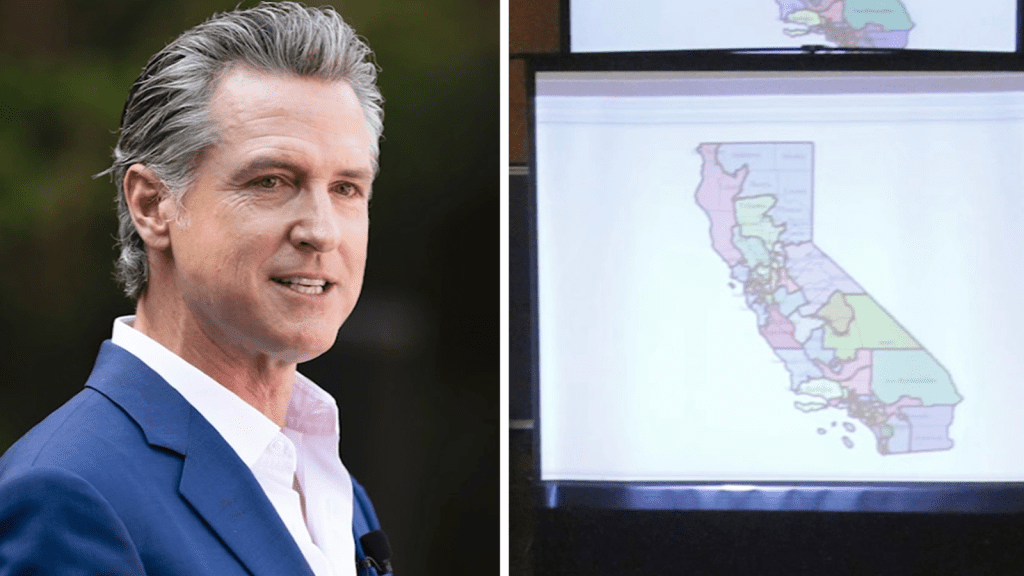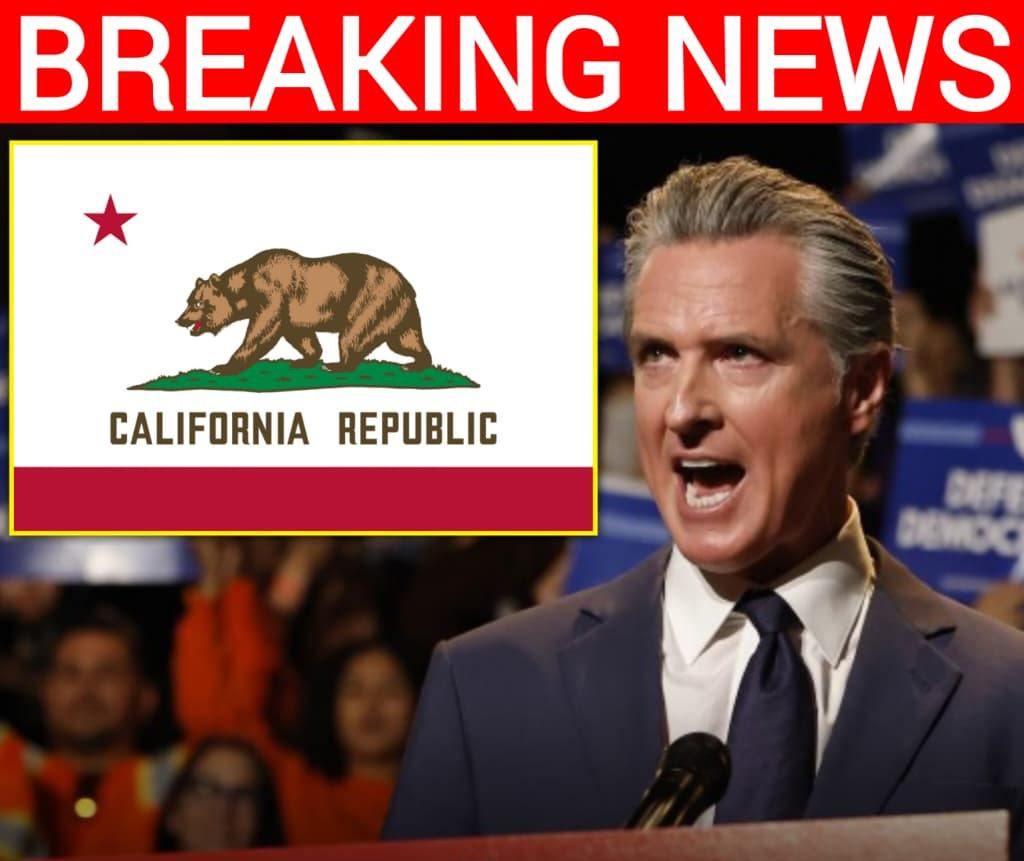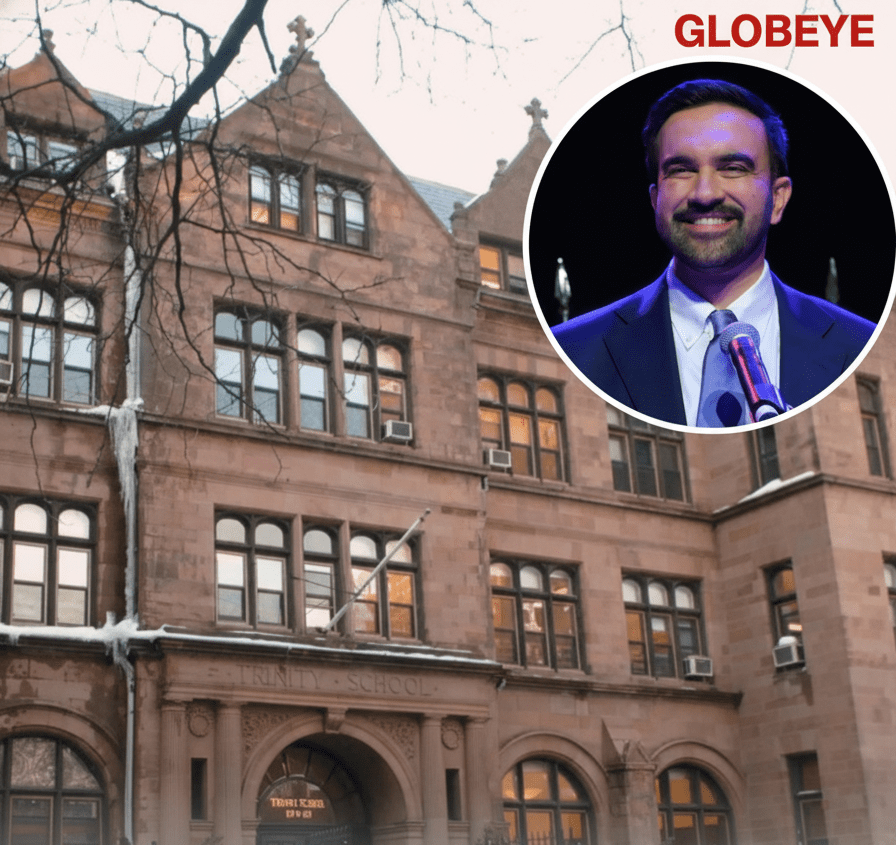Republicans Launch Federal Lawsuit Against Gavin Newsom, Accusing Democrats of “Unconstitutional Gerrymandering” to Rig 2026 Elections with Race-Based Districts
California’s political battleground erupted again this week as state Republicans filed a bombshell federal lawsuit accusing Governor Gavin Newsom and state Democrats of orchestrating one of the most aggressive partisan redistricting maneuvers in modern history. The suit, filed on November 5, 2025, came just hours after voters narrowly approved Proposition 50—a controversial ballot measure that effectively authorized the state legislature to redraw congressional maps under the guise of “racial representation.” Within minutes of the vote count’s conclusion, attorneys representing California’s GOP were in federal court, calling the maps a blatant violation of both the U.S. Constitution and the Voting Rights Act.

According to the 97-page complaint obtained by the Associated Press, Republican leaders allege that Newsom and Democratic lawmakers used race as a “predominant factor” in crafting new district boundaries, deliberately carving out Latino-majority districts across key regions to flip as many as five Republican-held House seats ahead of the 2026 midterms. The lawsuit argues that the maps were “engineered for partisan advantage under the pretext of equity,” citing extensive demographic data analyses and leaked legislative emails that purportedly reveal a coordinated effort to manipulate racial composition for electoral gain.
The lawsuit specifically challenges districts spanning parts of the Central Valley, Orange County, Riverside, and portions of Northern Los Angeles—areas long considered political swing zones. In one striking example, the filing describes a district that now stretches across nearly 120 miles of the Central Valley, connecting rural farming towns with urban centers that share little in common demographically or economically, other than their high percentage of Latino voters. “This is not representation—it’s manipulation,” said California GOP Chairwoman Jessica Millan Patterson in a statement Tuesday evening. “Democrats in Sacramento are trying to pick their voters instead of letting voters pick their representatives.”

At the heart of the controversy lies Proposition 50, a measure Governor Newsom championed throughout 2025 as part of what he called a “fairness reform” effort aimed at correcting “historical inequities” in political representation. The measure effectively overrode portions of California’s independent redistricting commission system—established through voter initiatives in 2008 and 2010—which had been widely praised as a model of nonpartisan map-drawing. Critics say Proposition 50 destroyed that legacy overnight, handing full redistricting power back to the state legislature, where Democrats hold a supermajority.
In August 2025, Newsom signed the bill that implemented the first phase of the remapping plan, arguing that Republican-led states like Texas, Florida, and Georgia had already “weaponized” redistricting for partisan gain. “California won’t stand by while democracy is rigged elsewhere,” Newsom said at the time. But his critics contend that the governor has done exactly what he claimed to oppose—rigging the game, just in the opposite direction. “It’s breathtaking hypocrisy,” said Republican Congressman Kevin Kiley, who represents California’s 3rd District. “Newsom has turned California into a one-party state, and now he wants to make sure it stays that way forever.”
The lawsuit draws heavily on precedent from recent U.S. Supreme Court decisions, including the landmark 2023 ruling in Allen v. Milligan, which found that Alabama’s redistricting map violated the Voting Rights Act by using race as a predominant factor without sufficient justification. In that case, the Court reaffirmed that while minority representation can be a legitimate consideration in district design, it cannot override traditional, race-neutral criteria such as compactness, contiguity, and respect for existing community boundaries. California Republicans argue that Newsom’s maps do precisely what the Court warned against—elevating race above all else to achieve a predetermined political outcome.
Legal scholars across the country are watching the case closely, viewing it as a potential sequel to Milligan with implications that could ripple far beyond California. “If the plaintiffs can prove that racial data was used primarily to engineer partisan outcomes, they have a strong case,” said Stanford Law professor Michael McConnell, a former federal judge. “Courts have been clear that race-based line drawing, when not narrowly tailored to address proven discrimination, is unconstitutional.”
The lawsuit also invokes California’s own state constitution, which enshrines principles of political neutrality and prohibits the legislature from passing laws that “discriminate on the basis of race or ethnicity.” The plaintiffs claim that the new maps openly defy those standards, pointing to leaked drafts and legislative memos that discuss “strategically clustering” racial groups in order to strengthen Democratic control in vulnerable districts. “It’s racial gerrymandering dressed up as social justice,” said GOP attorney Harmeet Dhillon, who is representing several plaintiffs in the case. “This is about power, not fairness.”

In response, Governor Newsom’s office issued a sharply worded statement late Tuesday, dismissing the lawsuit as “a desperate partisan stunt.” His communications director, Erin Mellon, said, “California has long led the nation in ensuring diverse representation, and this effort continues that legacy. The governor believes every community deserves a voice in Washington.” Democratic officials echoed that defense, arguing that the maps simply reflect California’s changing demographics and ensure that Latino, Black, and Asian-American communities have fair representation in Congress.
Still, the optics of the lawsuit could prove politically damaging for Democrats ahead of 2026. The challenge lands at a time when national attention is already fixated on redistricting battles in multiple states. In North Carolina and Wisconsin, Democrats have accused Republicans of similar partisan tactics, while in New York and Illinois, GOP leaders have filed suits alleging their own racial gerrymandering claims. The California case, however, stands out for its scale and symbolism: the country’s largest blue state now faces allegations of violating the very voting rights principles it often lectures others about.
Political analysts say the stakes couldn’t be higher. If the court grants the GOP’s request for a preliminary injunction, the maps could be frozen just months before the 2026 midterm cycle begins, forcing the state to revert to its 2022 boundaries or draw emergency alternatives under judicial supervision. “It could throw California’s entire congressional landscape into chaos,” said Sacramento-based political strategist Rob Stutzman. “We’re talking about potentially millions of voters being reassigned or districts left without clear boundaries just as campaigns are ramping up.”

Privately, some Democratic insiders admit concern over how far the legislature went in pushing the limits of legality. One staffer involved in the redistricting process, speaking anonymously to Politico, acknowledged that “the emphasis on race was stronger than usual” but claimed it was “in response to community input.” Others say the lawsuit is simply the latest move in a broader Republican legal strategy to challenge Democratic control in solidly blue states through the courts. “They know they can’t win statewide,” said one Democratic consultant. “So they’re trying to fight it out district by district.”
For Republicans, however, this is about more than politics—it’s about accountability. In recent statements, California GOP leaders have framed the lawsuit as a fight for transparency and fairness in a state they say has abandoned both. “This isn’t about one election,” said Jessica Millan Patterson. “It’s about restoring trust in a system that’s been corrupted by partisan greed.” She vowed that her party would pursue the case all the way to the Supreme Court if necessary.
Behind the scenes, the lawsuit is already energizing the GOP base in California, where party activists have struggled to gain traction in recent years. Within hours of the filing, the state Republican Party reported a surge in online donations, with social media posts spreading under hashtags like #StopTheMap and #SueNewsom trending among conservative circles. “Finally, someone’s fighting back,” one user wrote on X, formerly Twitter. “California deserves real elections, not rigged blueprints.”
Whether the courts ultimately side with Republicans remains to be seen. Federal judges are expected to hold preliminary hearings in early December, with both sides bracing for what could become a defining legal battle ahead of 2026. If history is any guide, similar cases in other states have taken months to resolve, often requiring the intervention of the Supreme Court to determine where fairness ends and partisanship begins.
For now, the lawsuit has once again put Gavin Newsom at the center of a national storm—one that tests not only his political instincts but his credibility as a self-styled defender of democracy. As one conservative commentator put it Wednesday morning, “Newsom’s playing with fire. If the courts strike this down, it won’t just be a legal loss. It’ll be proof that the so-called model of blue-state democracy was built on manipulation all along.”
The next few weeks will decide whether California’s new political map stands—or whether it collapses under the weight of its own contradictions. But one thing is clear: the battle over who draws the lines is now a battle over who defines democracy itself.



